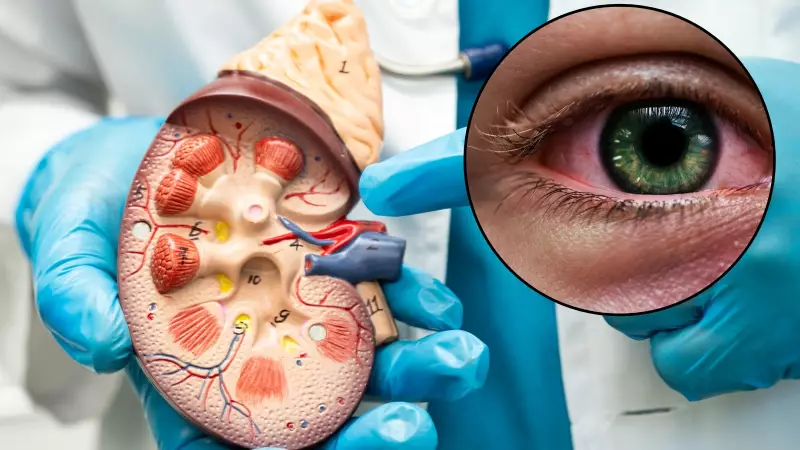
What began as a simple eye problem for one woman turned into a life-altering medical discovery that completely transformed her understanding of health and wellness. Her story serves as a crucial reminder that our bodies often send warning signals in unexpected ways.
The Unexpected Diagnosis That Changed Everything
A woman who thought she simply needed new glasses discovered something far more serious during a routine eye examination. She initially noticed blurred vision, heaviness in her eyelids, and puffiness around her eyes. "I thought it was something simple, maybe I just needed a new power in my glasses," she recalled thinking at the time.
Her decision to visit an ophthalmologist for what she expected to be a quick checkup instead revealed a shocking truth. After conducting several tests, her doctor delivered news that seemed incomprehensible at first - her kidneys were failing. "Within days, my entire world flipped," she shared in her online account of the experience.
The rapid progression from eye doctor to hospital admission was overwhelming. She suddenly found herself undergoing numerous blood tests, scans, and learning unfamiliar medical terms like "creatinine," "urea," and "end-stage kidney disease." The diagnosis came with a devastating prognosis: her condition was irreversible and would require lifelong treatment.
Medical Expert Explains the Kidney-Eye Connection
Dr Kavita Parihar, Director of Renal Transplant at Apollo Hospitals, Ahmedabad, clarifies the biological link between kidney dysfunction and eye problems. "Early kidney disease may present with symptoms such as swelling or puffiness around the eyes, a feeling of heaviness in the eyelids, and visual disturbances, including blurred vision or even partial vision loss," she explains.
The connection lies in the body's intricate network of blood vessels. "Kidney dysfunction is closely tied to conditions like high blood pressure and diabetes," Dr Parihar states. "When these conditions are uncontrolled, they damage the small blood vessels throughout the body—including those in the eyes."
She further elaborates that elevated blood sugar or high blood pressure can cause swelling of the optic nerve and retinal blood vessels, leading to blurred vision, puffiness around the eyes, or even retinal bleeding when vessels become too fragile and burst. When kidneys cannot filter properly, waste products and excess fluid accumulate in the body, contributing to swelling around the eyes and increasing pressure on delicate eye structures.
When Eye Symptoms Signal Advanced Kidney Problems
Certain vision changes may indicate more serious kidney involvement. According to Dr Parihar, "Symptoms such as persistent blurry vision, spotty vision, dark or black spots in the visual field, or significant vision loss can indicate more advanced eye involvement." When these symptoms appear, it may suggest that kidney disease has progressed to a more severe or advanced stage.
Dr Parihar advises immediate action for anyone experiencing concerning eye symptoms. "If someone experiences sudden or persistent vision problems, they should immediately check their blood sugar and blood pressure levels. If either of these is elevated—or if the vision issues persist—they should consult a kidney specialist immediately."
She emphasizes that sudden or ongoing eye symptoms can serve as early warning signs of underlying kidney dysfunction, making timely testing of kidney function critically important for early detection and intervention.
Reflecting on her shocking health journey, the woman shared, "There's no way to describe that kind of shock—it's like life paused and rewrote itself. I was told there was no reversing my condition, that I would need lifelong treatment, and that everything I knew about 'normal' was about to change."
Her experience underscores a vital health lesson: even seemingly minor eye problems—such as blurred vision, puffiness, or subtle changes—can signal serious underlying health issues that require immediate medical attention. Early detection through regular checkups and prompt consultation with specialists can make a life-saving difference.






